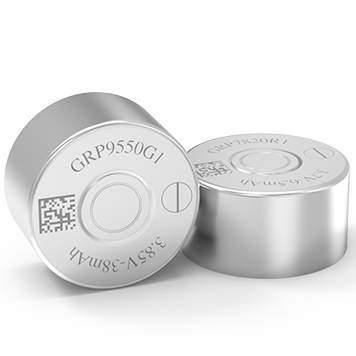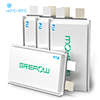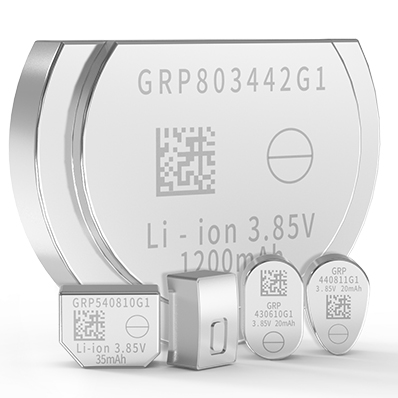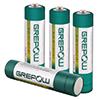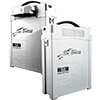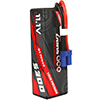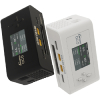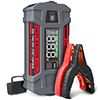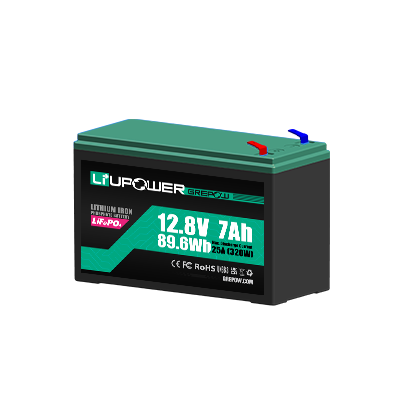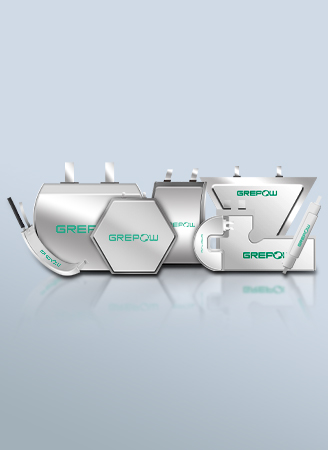Prescription vs OTC Hearing Aids: What's the Difference?
Choosing the right hearing aid can be a daunting task, especially with the variety of options available today. The decision between prescription and OTC hearing aids is a crucial one, as it directly impacts your hearing health, comfort, and overall quality of life. While both types of devices aim to improve your ability to hear, they differ significantly in terms of customization, cost, and accessibility. Understanding these differences can help you make an informed decision that best suits your unique hearing needs and lifestyle.
What Is a Prescription Hearing Aid?
Prescription hearing aids are custom devices, which require an audiometric test and prescription from a trained, licensed audiologist, and are purchased through a licensed hearing aid provider. After the testing process, your audiologist will talk to you about the different options and styles available, recommending the best solution for your particular set of needs. Prescription hearing aids are designed to treat any level of hearing loss, from mild to profound, in both children and adults.

What Is an OTC Hearing Aid?
An OTC (Over-the-Counter) hearing aid, as the name implies, is a type of hearing device that you can buy directly from a store or online without needing a prescription or a visit to a hearing specialist. These hearing aids are designed for adults with mild to moderate hearing loss and are intended to be more affordable and accessible than prescription hearing aids. Unlike prescription hearing aids, OTC hearing aids are not custom-fitted or programmed by a professional. They are typically easier to set up and use, making them a convenient option for those who want to manage their hearing loss independently.
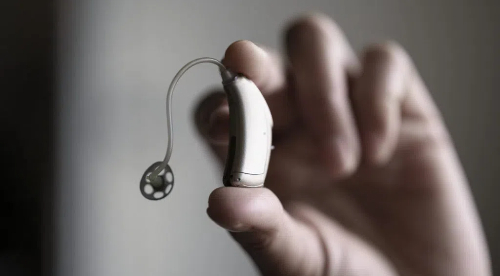
Prescription vs OTC Hearing Aids: What's the Difference?
Type of Hearing Loss
●Prescription Hearing Aids: These are intended for individuals with all types of hearing loss, including severe and profound cases. If you struggle to hear even in quiet settings or find it difficult to hear loud noises like a truck passing by, prescription hearing aids may be necessary.
●OTC Hearing Aids: These devices are designed specifically for adults with mild to moderate hearing loss, typically in the 20 to 60 decibels (dB) range. This means they are suitable for individuals who may experience difficulty hearing in noisy environments, often ask others to repeat themselves, or need to increase the volume on the TV more than others would.
Accessibility and Where to Buy
●Prescription Hearing Aids: These devices are obtained through a hearing healthcare professional, such as an audiologist or hearing instrument specialist. The process involves a thorough hearing evaluation using advanced diagnostic tools, followed by a professional fitting and ongoing adjustments to ensure the hearing aids work optimally for the user’s specific needs.
●OTC Hearing Aids: These can be purchased directly from a variety of retailers, including pharmacies, big-box stores and online platforms. They do not require a fitting by an audiologist, making them more convenient for immediate access. The FDA has set quality standards for these devices to ensure safety and effectiveness, but the process of selecting and configuring the device is left to the user.
Cost Considerations
●Prescription Hearing Aids: On average, these devices cost about $4,600 per pair, with premium models potentially reaching up to $12,000. This price generally includes the cost of the devices, professional fitting, follow-up care, and maintenance services for the life of the hearing aids.
●OTC Hearing Aids: While the exact pricing of OTC hearing aids is still emerging, they are expected to be significantly more affordable than prescription devices. Government estimates suggest that users could save around $2,800 per pair compared to prescription hearing aids.
Adjustments and User Experience
●Prescription Hearing Aids: These are professionally programmed to match the user's specific hearing profile. The hearing specialist ensures that the devices fit comfortably and are optimized for the user's hearing needs. Regular follow-up appointments allow for fine-tuning and addressing any issues that arise, ensuring a more tailored and effective hearing solution.
●OTC Hearing Aids: Users are responsible for configuring and adjusting these devices on their own, often through software or smartphone apps. This self-service approach may require some trial and error, and users may need to experiment with different settings over several weeks to achieve satisfactory results.
Design and Innovation
●Prescription Hearing Aids: These come in a variety of styles, including behind-the-ear (BTE), in-the-ear (ITE), and custom designs tailored to individual comfort and aesthetic preferences. Working with an audiologist allows users to explore different designs and find the best fit for their needs.
●OTC Hearing Aids: Initially, these devices may resemble simpler prescription models, but the direct-to-consumer market is expected to drive innovation in hearing aid design. Experts predict significant advancements in the appearance and functionality of OTC hearing aids over the next decade, potentially leading to more discreet and user-friendly options.
Hearing Tests and Diagnostics
●Prescription Hearing Aids: A hearing healthcare professional conducts a comprehensive assessment, including physical examinations and auditory tests, to diagnose the extent and cause of hearing loss. This detailed evaluation ensures that the hearing aids are specifically tailored to the user's condition, offering the most effective solution.
●OTC Hearing Aids: Since these do not require a professional hearing test, users may rely on online hearing tests or apps provided by the manufacturer, though these tools may not provide a complete or accurate assessment of hearing loss. Without a thorough evaluation by a professional, users risk choosing a device that doesn't effectively address their hearing needs or may even be unnecessary if the hearing loss is due to a treatable condition like earwax buildup.
Technology and Features
●Prescription Hearing Aids: These are equipped with the latest technology, providing a range of features that enhance the listening experience. Advanced options may include wireless connectivity with smartphones and TVs, noise filtering for different environments, directional sound control, and even health monitoring. These features allow users to customize their hearing aids to suit their lifestyle and specific hearing challenges.
●OTC Hearing Aids: These devices typically offer basic sound amplification, which may be sufficient for mild to moderate hearing loss. However, their capabilities are generally limited compared to prescription models. OTC hearing aids may lack advanced features, such as noise reduction, directional microphones, or connectivity with other devices.
Fitting and Comfort
●Prescription Hearing Aids: Professionally fitted hearing aids are customized to ensure comfort and effectiveness. If issues with fit or comfort arise, users can return to the clinic for adjustments or replacements, benefiting from a consistent return policy and professional support.
●OTC Hearing Aids: Since these are self-fitted, users may face challenges in finding a comfortable and secure fit. Poorly fitting devices can lead to discomfort or dissatisfaction, and return policies may vary widely by manufacturer. It’s crucial to carefully review return policies before purchasing.
Ongoing Hearing Health Care
●Prescription Hearing Aids: These come with the added benefit of continued care from a hearing healthcare team. Regular visits ensure that any changes in hearing are promptly addressed, and the hearing aids are adjusted as needed to maintain optimal performance.
●OTC Hearing Aids: Users do not receive ongoing professional care, which may pose risks to their overall hearing health. Without regular check-ups, changes in hearing loss might go unnoticed and untreated.
Long-Term Value and Considerations
●Prescription Hearing Aids: Though more expensive initially, prescription hearing aids offer greater value through personalized care, advanced technology, and ongoing support. For those concerned about cost, various financing options, such as health insurance, payment plans, and health savings accounts, may be available to help manage the expense.
●OTC Hearing Aids: While they offer a lower upfront cost, OTC hearing aids may lack the comprehensive care and support needed for long-term hearing health. The lack of professional guidance can lead to frustration and potentially higher costs if multiple devices are needed to find the right fit.
In summary, while OTC hearing aids provide a more accessible and affordable option for those with mild to moderate hearing loss, they come with limitations in terms of customization, technology, and professional support. Prescription hearing aids, though more costly, offer a tailored approach with advanced features and ongoing care, making them a better choice for those with more complex hearing needs or who value comprehensive hearing health management.
Prescription vs OTC Hearing Aids: Which One to Choose?
Both prescription and over-the-counter (OTC) hearing aids amplify sound to help you hear better, but there are important differences between them. Here’s what you need to know:
Hearing Loss Match
Prescription hearing aids are suitable for all levels of hearing loss, while OTC hearing aids are designed for mild to moderate hearing loss. If your hearing loss is severe, prescription models are necessary.
Affordability
OTC hearing aids are typically more affordable, often costing under $1,500 per pair, compared to $4,000-$5,000 for prescription models. Additionally, OTC options can save you money on professional consultations and tests.

Accessibility
OTC hearing aids are easy to purchase online or at local stores, making them more accessible. Prescription hearing aids require visits to a professional, which can be less convenient.
Style:
Many OTC hearing aids feature modern, discreet designs, which may appeal to those concerned about the stigma of hearing loss.
Your Best Option
If you have mild to moderate hearing loss, prefer lower costs, and want quick access, OTC hearing aids might be right for you. However, for severe hearing loss, prescription hearing aids are the better choice. Regardless of your choice, consulting a professional is recommended to ensure you’re making the best decision for your hearing health.
Rechargeable or Disposable Prescription and OTC Hearing Aids?
When choosing between rechargeable and disposable hearing aids, whether they are prescription or OTC, here are some key points to consider:
Rechargeable Hearing Aids:
●Convenience: Rechargeable hearing aids can be charged overnight, eliminating the need to frequently buy and replace batteries.
●Environmental Impact: They are more environmentally friendly since they reduce battery waste.
●Long-Term Cost: While they may have a higher upfront cost, rechargeable hearing aids can save you money over time by eliminating the need for disposable batteries.
●Availability: Rechargeable options are available in both prescription and OTC models, offering flexibility no matter your choice.
Disposable Battery Hearing Aids:
●Lower Initial Cost: Disposable battery models may have a lower initial cost, making them more affordable upfront.
●Readily Available: Disposable batteries are easy to find and replace, though this can add up in cost over time.
●No Charging Needed: They are ideal for those who prefer not to worry about recharging or who might have limited access to power.
●Weight and Size: Some disposable battery models may be lighter and smaller, offering more discreet options.
Your Best Option:
If you value convenience, long-term savings, and eco-friendliness, rechargeable hearing aids could be the better choice. However, if you prefer a lower upfront cost and the simplicity of changing batteries without worrying about charging, disposable battery models might be more suitable. Both options are available in prescription and OTC hearing aids, so you can make a choice that best suits your lifestyle and hearing needs.
In conclusion, the choice between prescription and OTC hearing aids depends on various factors, including the severity of your hearing loss, your budget, and your preference for professional guidance. Prescription hearing aids offer a personalized, comprehensive approach with advanced features and ongoing support, making them ideal for those with complex hearing needs. On the other hand, OTC hearing aids provide a more affordable and accessible option for individuals with mild to moderate hearing loss who prefer to manage their hearing health independently. As a global leading lipo battery manufacturer, Grepow offers custom rechargeable lithium-ion coin cell, shaped pouch lipo battery cell and shaped metal casing lipo battery cell to meet the needs of both prescription and OTC hearing aids applications. If you have any questions or needs, please feel free to contact us at info@grepow.com.
Related Articles
-

How Are Smart Rings Powered?
2024-09-05 -

AUV vs. UUV: What’s the Difference?
2024-09-05 -

What Battery Is Used In Humanoid Robots?
2024-08-30
Related products
-

GRP9554G1 Rechargeable Lithium-Ion Button Cell Battery
-

GRP7854 Series Rechargeable Lithium-Ion Button Cell Battery
-

GRP9550G1 Rechargeable Lithium-Ion Button Cell Battery
-
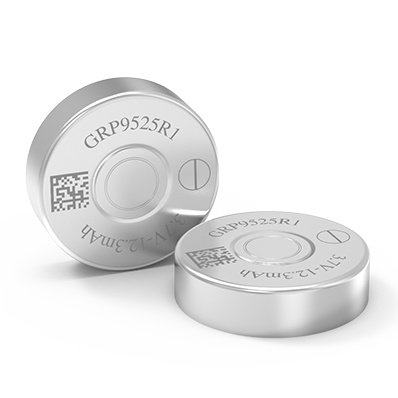
GRP9525 Series Rechargeable Lithium-Ion Coin Cell Battery
-

GRP1025 Series Rechargeable Lithium-Ion Coin Cell Battery
-
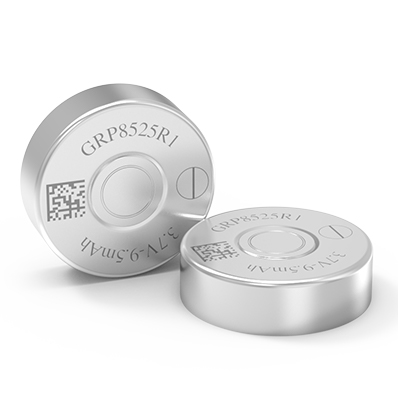
GRP8525R1 Rechargeable Lithium-Ion Coin Cell Battery
-
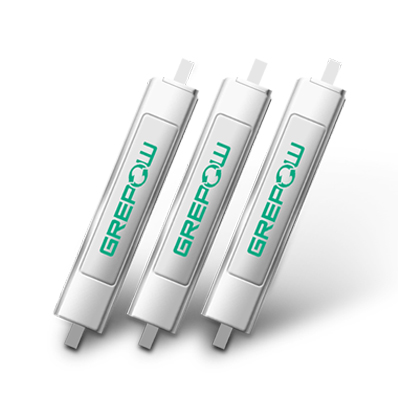
Pouch Ultra Narrow Lipo Battery
-
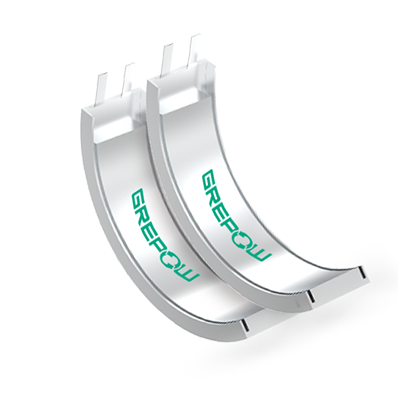
Pouch Curved Lipo Battery




